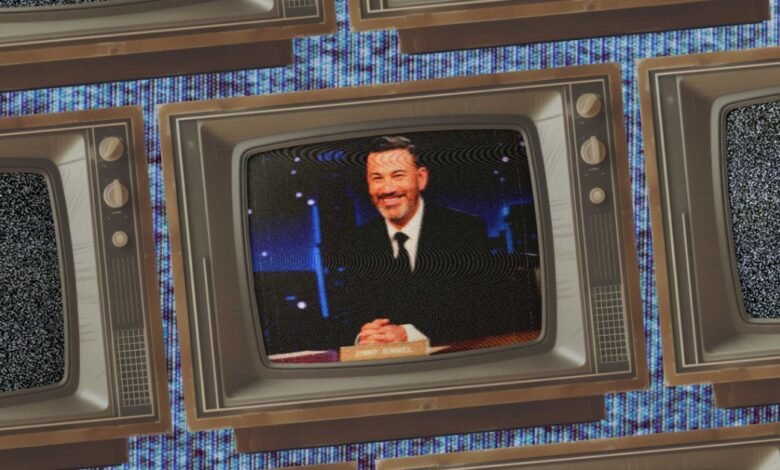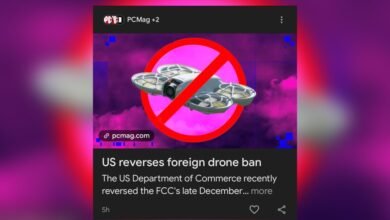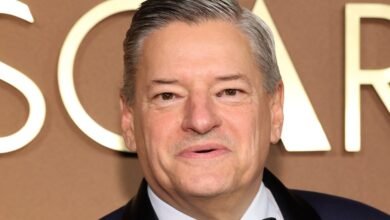Disney’s Newest Legacy

▼ Summary
– FCC Commissioner Brendan Carr threatened ABC with regulatory action if Jimmy Kimmel’s show was not addressed, leading Nexstar Media Group to preempt the program on its ABC affiliates.
– Disney/ABC’s decision to suspend Jimmy Kimmel Live is seen as a capitulation to political pressure, which has sparked internal employee dissent and external calls for a consumer boycott.
– The suspension occurred after comedian Jimmy Kimmel reportedly refused to “kowtow” to executive pressure to de-escalate a controversy surrounding a joke he made.
– Disney’s actions have raised concerns across the entertainment industry, signaling to creatives that the company may censor content to avoid conflict with the Trump administration.
– By acquiescing to political pressure, Disney has damaged its brand reputation and is now perceived by some as being willing to stifle free speech and produce government-approved content.
The recent suspension of Jimmy Kimmel Live by Disney’s ABC affiliates represents a significant and troubling shift in the company’s approach to political pressure. This decision, prompted by threats from FCC Commissioner Brendan Carr, has ignited a firestorm of criticism and raised serious questions about corporate courage and artistic freedom. The move is widely seen as a strategic attempt to avoid regulatory hurdles, but it comes at a steep cost to the company’s reputation.
The chain of events began when Carr, in an interview, suggested that media companies could face difficulties with the Federal Communications Commission unless they took action against Kimmel. Nexstar Media Group, the largest owner of television stations in the country, swiftly announced the indefinite preemption of the late-night show on its ABC affiliates. This was interpreted as a direct effort to gain favor with the FCC, which must approve Nexstar’s multi-billion dollar merger with Tegna. ABC’s subsequent endorsement of the suspension cemented the perception of capitulation to political demands.
Unlike other media conglomerates that have navigated similar regulatory landscapes, Disney’s acquiescence appears preemptive, an attempt to stay off the Trump administration’s radar. However, this display of submission has backfired, sparking calls for a consumer boycott. While the actual financial impact of these protests remains uncertain, the public outcry is palpable across social media, with many vowing to cancel Disney+ subscriptions and reconsider visits to theme parks.
Internally, the decision has caused significant strife. Reports indicate that CEO Bob Iger and television head Dana Walden faced resistance from employees who believed silencing Kimmel was the wrong move. The suspension reportedly followed discussions where Kimmel refused to back down from a controversial joke, leading executives to pull his show for the week. This action has unmistakably painted Disney as a corporation willing to stifle free speech to appease political power.
This is not the first time Disney has found itself in a political quagmire. The company’s hesitant response to Florida’s “Don’t Say Gay” bill previously led to internal unrest. The current situation, however, has created a chilling effect, with employees reportedly fearful of speaking out. The repercussions are extending beyond company walls, causing alarm throughout the entertainment industry. Executives and agents are now questioning whether creative talent will want to partner with a studio that may cave to government censorship.
The long-term damage to Disney’s brand could be profound. By yielding to overt pressure, the company signals that its creative output may be subject to political approval. This undermines the very narratives of bravery and defiance against tyranny that Disney has built its empire upon. Why would a writer or director bring their boldest ideas to a company that has demonstrated a willingness to compromise artistic integrity?
Disney has effectively set a precedent that invites further political intimidation, with no guarantee that the demands will stop here. The message sent to the public and the creative community is that Disney’s content may no longer be a reflection of honest storytelling, but rather a product filtered through the lens of what is deemed acceptable by the current administration. This capitulation risks transforming the Magic Kingdom’s legacy from one of enchantment to one of complicity, potentially branding Disney as an arm of government propaganda rather than a beacon of independent creativity.
(Source: The Verge)





